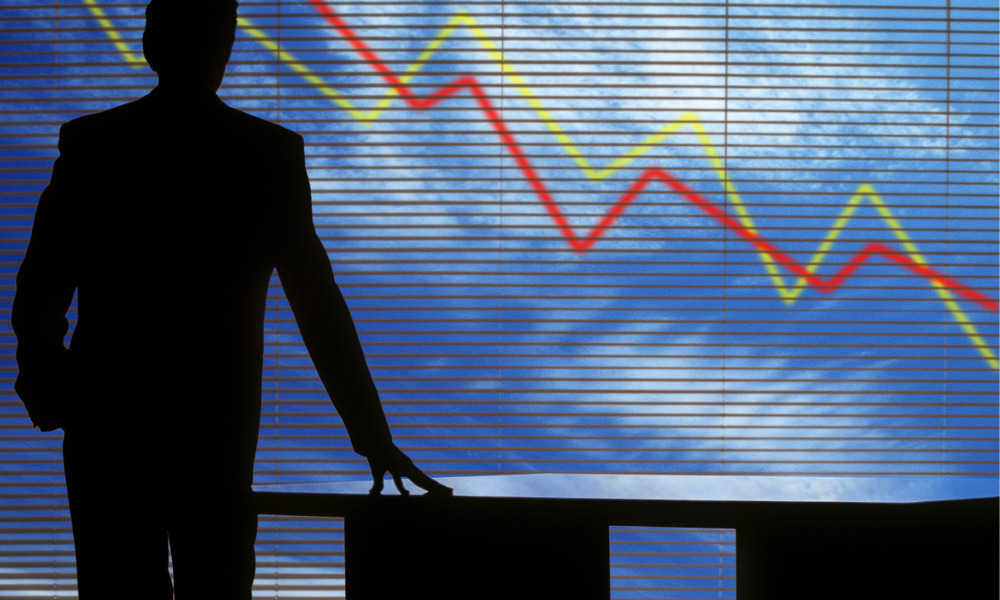Brooke Thackray, of Horizons ETFs, aligns with 'Big Short' investor's view and warns current economic optimism is misplaced

Brooke Thackray, Research Analyst at Horizons ETFs, is sounding a warning that recalls memories of the 2008 financial crisis. He questions the prevailing confidence in the Federal Reserve's ability to steer the economy to a soft landing through its current strategies. In his latest newsletter, he dissects the rationale behind such beliefs and why they might be ill-founded.
According to Thackray, the markets and the media seem to be operating under the assumption that the Federal Reserve can engineer a scenario where a recession is avoided, even as it raises rates to combat inflation. “The rationale put forward for a soft landing is that the Federal Reserve has been raising rates and if the economy were to stumble, all that has to happen is for the Federal Reserve to cut rates and everything will be fine,” Thackray writes. “This is faulty logic and does not incorporate the lag effects of previous monetary policy. The typical scenario is for a tipping point to occur and the economy start to slow regardless of rate cuts.”
In a recent interview, he elaborated, "It's a belief that they're going to accomplish their goal. And they're going to be able to manage this properly. It'll all work itself out because they have tools to adjust when things start to slow down,” he says. “But if you look back, even 2008, we saw exactly the same rhetoric being used consistently, that a soft landing is a likely scenario, and we know that was not the case in the end."
Thackray's concerns are supported by none other than Michael Burry, the renowned “Big Short” investor. Burry has placed a bet of more than $1.6 billion, over 90% of his portfolio, on a Wall Street crash. This move aligns with Thackray's analysis, lending further credence to the argument that the current economic optimism may be misplaced.
Thackray's report also underscores a major dilemma regarding inflation and government spending. The U.S. government's projected deficit of $1.5 trillion for fiscal year 2023, he argues, is unsustainable. Despite inflation rates settling back down to the 3% range, the government's increase in spending is short-term inflationary. “This is not sustainable. All increased government spending is inflationary in the short-term. It puts pressure on the Federal Reserve to continue hiking rates and leaving rates higher for longer,” he notes.
"Governments around the world - I can pick out any one, but they seem to be all the same - the economy slows down, they spend money, and they spend a lot of it. And when the economy picks up, they keep spending," he says.
Thackray also expresses particular concern about the massive stimulus introduced during COVID-19, which has led to anomalies in the economic landscape. The sudden influx of support created a distortion, and Thackray points to troubling signs in the credit sector. "There's been a lot of data with economic leading indicators saying that things look not so good for credit card delinquencies, auto loan delinquencies are rising, repossession rates are going up,” he says.
While subprime mortgages were a key factor in 2008, the trigger for a potential upcoming correction is less clear. Thackray suggests that unemployment figures might be the decisive factor. “Government spending is covering up what's taking place," he notes. "If we see the unemployment rate start to tick up higher... companies will start cutting back, and the reaction in the stock market could actually be fairly fast.”
As he notes in the newsletter, this issue isn't going away anytime soon. If governments around the world continue to increase their spending, they will further add to their deficits in the process. While some may consider raising taxes as a solution, such a move could further slow down the economy without adequately compensating for their spending. “This is going to be a big story for a long time,” he writes.
In an era marked by unprecedented global challenges and economic complexity, Thackray’s analysis serves as a reminder that the echoes of 2008 are not so distant and the wisdom of informed caution may be more valuable than ever.



